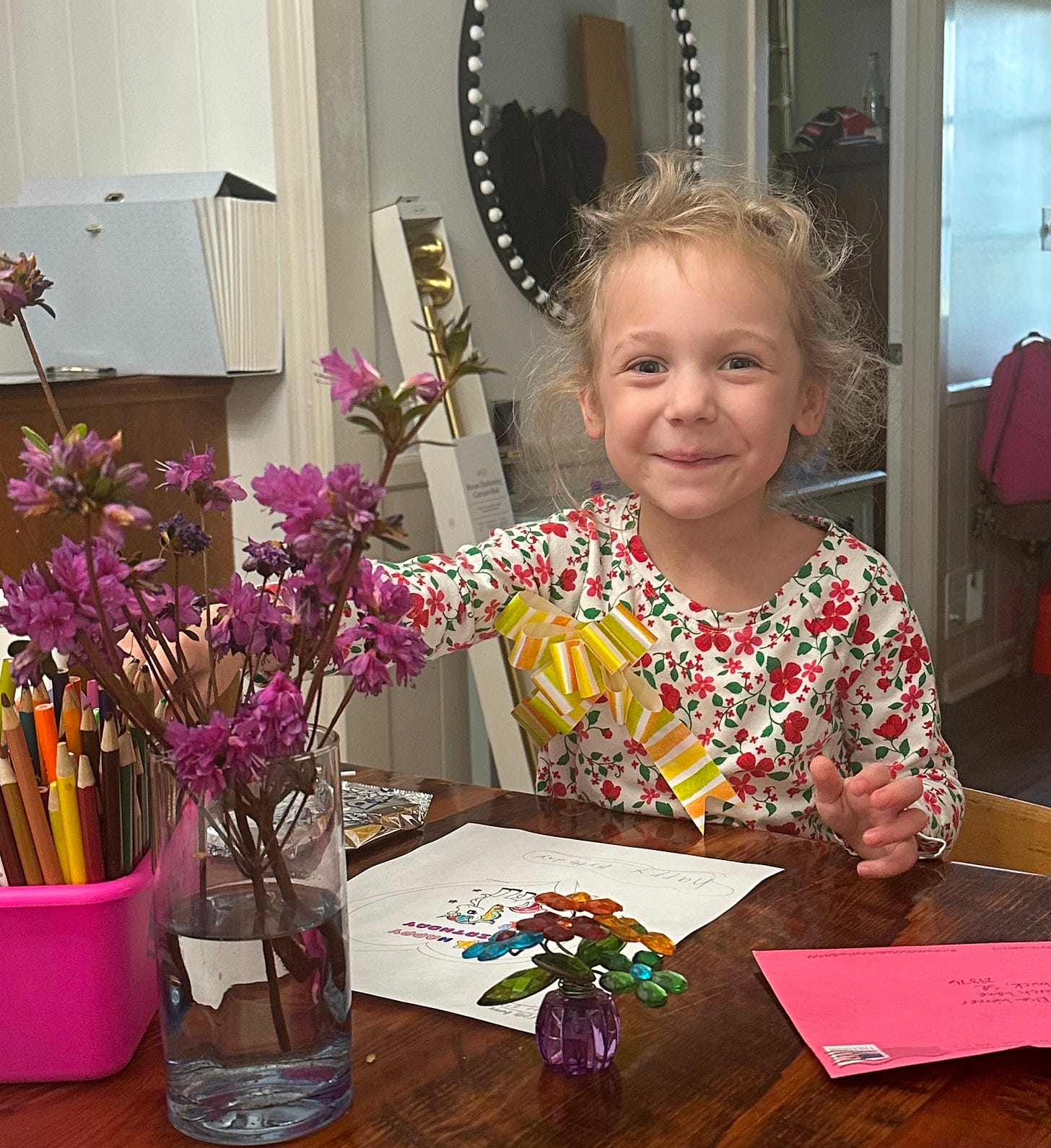“I’ve never felt this way on my birthday before!” My newly-six-year-old daughter exclaimed this week.
“What are you feeling?” I asked her.
“I don’t know what it’s called. It’s just…everyone is doing things for me without me even asking. They’re singing to me, playing video games with me, giving me new things…”
“That’s called love!”
Her face:
Do you see that glow? I was holding back tears—feigning nonchalance. Trying to grasp the profundity of the moment without freaking her out.
A couple years ago I read The Soul of Shame, in which Curtis Thompson talks about how emotions are primarily physical experiences. The process of attaching them to words and meanings happens quickly, but secondarily. So, when kids tell us that they don’t know what they’re feeling, that’s because they don’t have the language yet. They haven’t accumulated enough experiences to know that this warm, fuzzy feeling means love, or this sinking, crushing feeling means shame. Adults can help point them to words, but there’s also a powerful truth for adult to learn: emotions are not abstractions. They are real, lived experiences.
Sometimes in faith, love gets very spiritualized to the point where it is not an experience at all- it’s an abstraction, a choice, a reality.
And those things can be true.
But when a crisis of faith comes and we’ve lost our ability to feel the love of God, we need to know that it’s real. And knowing often comes through experiencing. When we’re teaching our kids about the love of God, we must start with what they know and have experienced. From there we can fill it out.
One of my operating theses for my life the past couple years has been this:
The love of God is not something we have to imagine into our hearts.
It’s not all abstraction. It’s a real experience. We are part of bringing the experience of the love of God to those around us. To our family, our friends, our neighbors. The love of God working through our hands and feet can be the difference between God’s love feeling like an abstraction or an experience. And experiences are what sustain us in the desert, when all we have left is abstractions.
What is this feeling? This feeling is love. And it is good, beautiful, and true.






This is wonderful, Crisanne. As I was really deconstructing my evangelicalism I held onto the thought, much less concisely stated than you did here, that Jesus' words and examples must actually mean things. If Jesus uses a metaphor of God as a good father, then God's parental love and fatherly characteristics must be meaningfully aligned with the parental love and instincts that I as a father have for my own children. Obviously God's are better; but they must at least be the same _kind_ of thing.
The move that I saw my evangelical church making was to say that 'sure, God is love, but God's love is so unlike our love that it doesn't look like what we think love looks like'. And I finally came to reject that move. (I also then paired that with reading Thomas Talbott and ended up a Christian universalist... but that's another story.)
So yes: the love of God is real, and we don't have to imagine it or force it in somehow. It will feel like love, real, in-person love. Amen and hallelujah.
Such a clarifying thought, Crisanne! I also appreciate that you said so much in so little space. I sometimes feel like the Substack space is for those who can write scholarly journal level stuff. Your piece here modeled the goodness of richness without needing to write pages!